It is no secret that the Coastal Studies Institute’s partnerships reach across the world. These partnerships contribute, at least in part, to the success of the institution, and CSI’s newest collaborative endeavor does not fall short of these lofty expectations.
Late this week, ECU made public CSI’s role in the newly founded Atlantic Marine Energy Center (AMEC). AMEC, funded by a nearly $10 million grant from the US Department of Energy (DOE) and led by the University of New Hampshire, is a consortium of academic institutions including CSI, Stony Brook University, and Lehigh University. The center will focus on research and development to address ongoing needs for sustainable renewable ocean energy. It will be one of only four National Marine Renewable Energy Centers in the country.
Partnering with each other, as well as with several other key energy collaborators, researchers and engineers will work to further ocean energy technology through research, education, and outreach, complementing work being done at the DOE’s National Labs. The applications developed by the partners will help power the “blue economy” – an emerging concept that encourages better use of the ocean as a resource while reducing environmental harm.
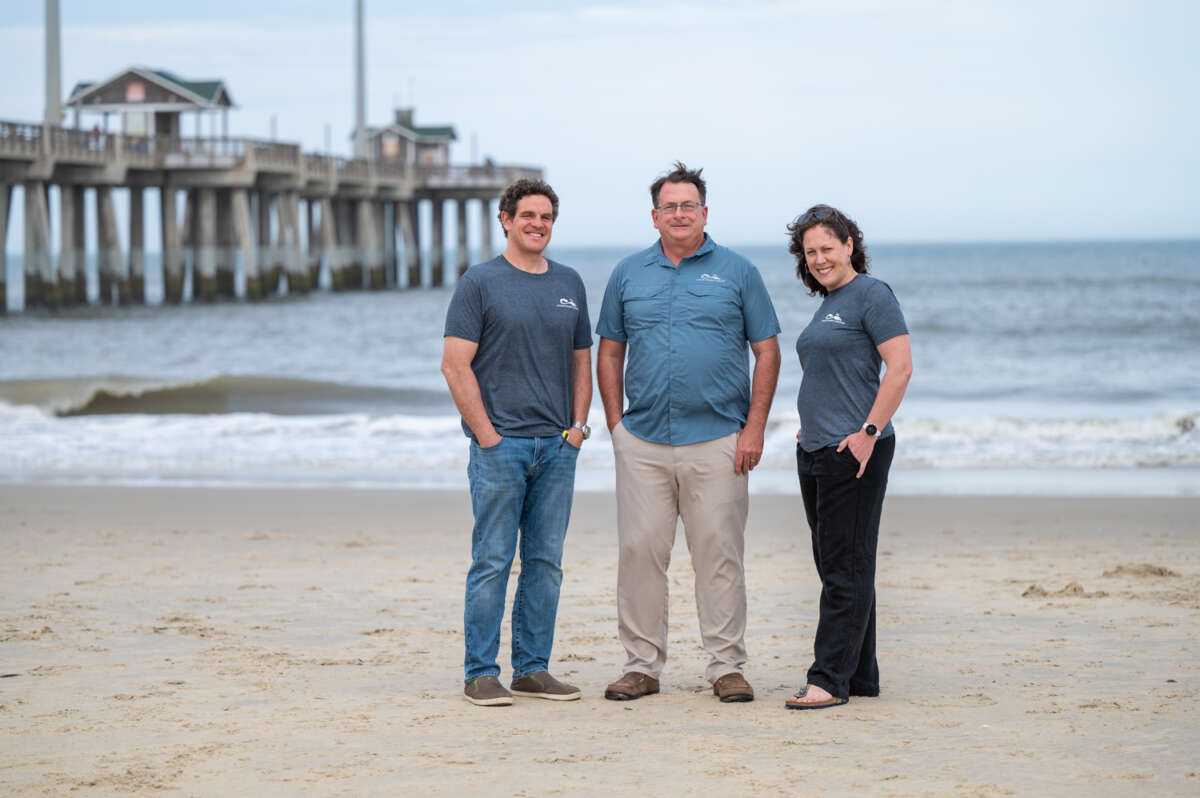
The North Carolina Renewable Ocean Energy Program is led by Director George Bonner (center), Associate Director Dr. Lindsay Dubbs (right), and Assistant Director of Science and Research Dr. Mike Muglia (left).
The formation of this new National Marine Energy Center will also provide new opportunities in renewable energy research and testing for the North Carolina Renewable Ocean Energy Program (NCROEP). Based at the Coastal Studies Institute on the ECU Outer Banks Campus, NCROEP advances inter-disciplinary marine energy solutions across UNC System partner colleges of engineering at NC State University, UNC Charlotte, and NC A&T University. It is the mission of the NCROEP to use renewable ocean energy wisely to effectively and economically power North Carolina’s Blue Economy and in the process create jobs and economic opportunities.
“The Atlantic Marine Energy Center consortium offers a tremendous opportunity for the Coastal Studies Institute and its North Carolina Renewable Ocean Energy Program partner to continue leadership in advancing marine energy solutions for our Blue Economy,” states NCROEP Director George Bonner. “We are excited about the new university partnerships, complementary research, and testing infrastructure initiatives.”
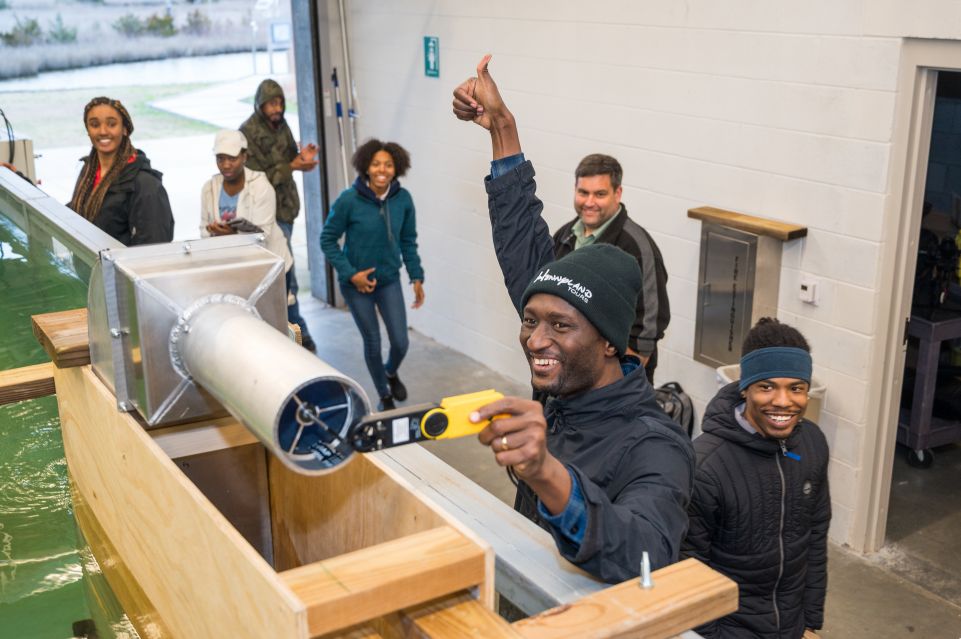
NCA&T engineering students have taken advantage of CSI’s wave tank to test their oscillating wave column design. As the waves rise and fall, air is forced into a column that drives a small wind turbine. As the turbine rotates, it generates electrical energy.
Scientists and engineers from each institution, including both faculty and students, will work in the field, the laboratory, or computationally to study and implement ocean energy projects. The focus will be on the scientific understanding and overall effectiveness of wave energy and tidal energy conversion, including wave-powered water pumps and tidal turbine farms. Crossover research will explore applications for ocean sensing, aquaculture, resilient coastal communities, supply chains, marine foundations and marine microgrids. Expansion of existing projects will include further development of CSI’s research partnerships.
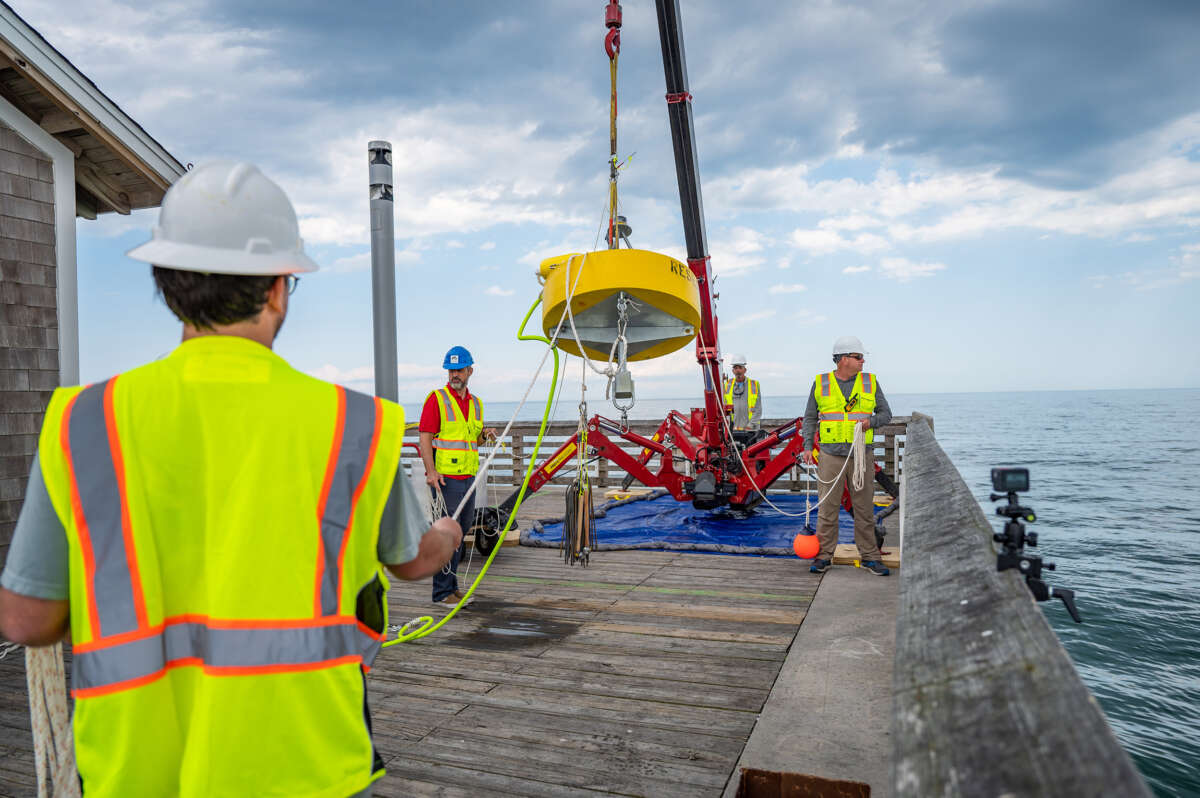
CSI, NCROEP, and Jennette’s Pier are working together to host the final stage of the DOE-sponsored Waves to Water Prize at Jennette’s Pier in April 2022. In preparation for the event, the two teams have been fine-tuning deployment tactics for the wave-powered desalination devices that will be at sea next spring.
“The North Carolina Aquariums has been a valued partner in developing CSI’s testing capabilities at Jennette’s Pier and we look forward to expanding our testing program including the pursuit of accreditation to international standards with the assistance of our partners from the European Marine Energy Centre. NC State University’s FREEDM Center also plays a critical role in the installation of a green energy micro-grid for testing at Jennette’s Pier. Our research will continue to prioritize holistic environmental assessments and stakeholder engagement in the development of responsible solutions,” shares Bonner.
Along with the partner universities, AMEC will also collaborate with the National Renewable Energy Laboratory, Sandia National Laboratories, Pacific Northwest National Laboratory, European Marine Energy Centre, and Old Dominion University (ODU). ODU is a leader in the state of Virginia’s offshore wind research development, and CSI’s valuable partnership with ODU provides an opportunity to co-develop marine hydrokinetic energy devices alongside offshore wind utilizing existing Virginia offshore permits.
“As a National Marine Energy Center, we are also part of a broader network to support research collaboration and industry in marine commercialization. Marine energy offers unique resource potential in achieving North Carolina and U.S. clean energy goals as well as creating global marketplace opportunities.”
The research will be funded by DOE’s Office of Energy Efficiency and Renewable Energy (EERE) under the Water Power Technologies Office (WPTO) Award Number DE-EE0009450.
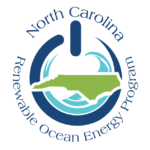

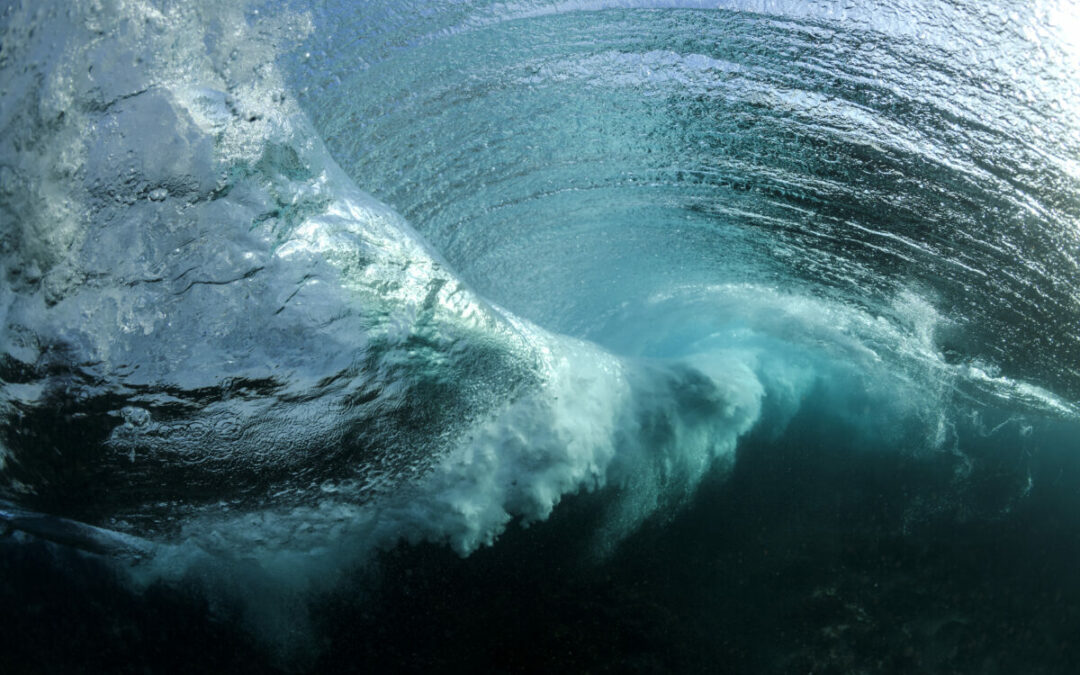

 Based at the Coastal Studies Institute (CSI), the North Carolina Renewable Ocean Energy Program (NCROEP) advances inter-disciplinary marine energy solutions across UNC System partner colleges of engineering at NC State University, UNC Charlotte, and NC A&T University. Click on the links below for more information.
Based at the Coastal Studies Institute (CSI), the North Carolina Renewable Ocean Energy Program (NCROEP) advances inter-disciplinary marine energy solutions across UNC System partner colleges of engineering at NC State University, UNC Charlotte, and NC A&T University. Click on the links below for more information. ECU's Integrated Coastal Programs (ECU ICP) is a leader in coastal and marine research, education, and engagement. ECU ICP includes the Coastal Studies Institute, ECU's Department of Coastal Studies, and ECU Diving and Water Safety.
ECU's Integrated Coastal Programs (ECU ICP) is a leader in coastal and marine research, education, and engagement. ECU ICP includes the Coastal Studies Institute, ECU's Department of Coastal Studies, and ECU Diving and Water Safety. The ECU Outer Banks campus is home to the Coastal Studies Institute.
The ECU Outer Banks campus is home to the Coastal Studies Institute.

